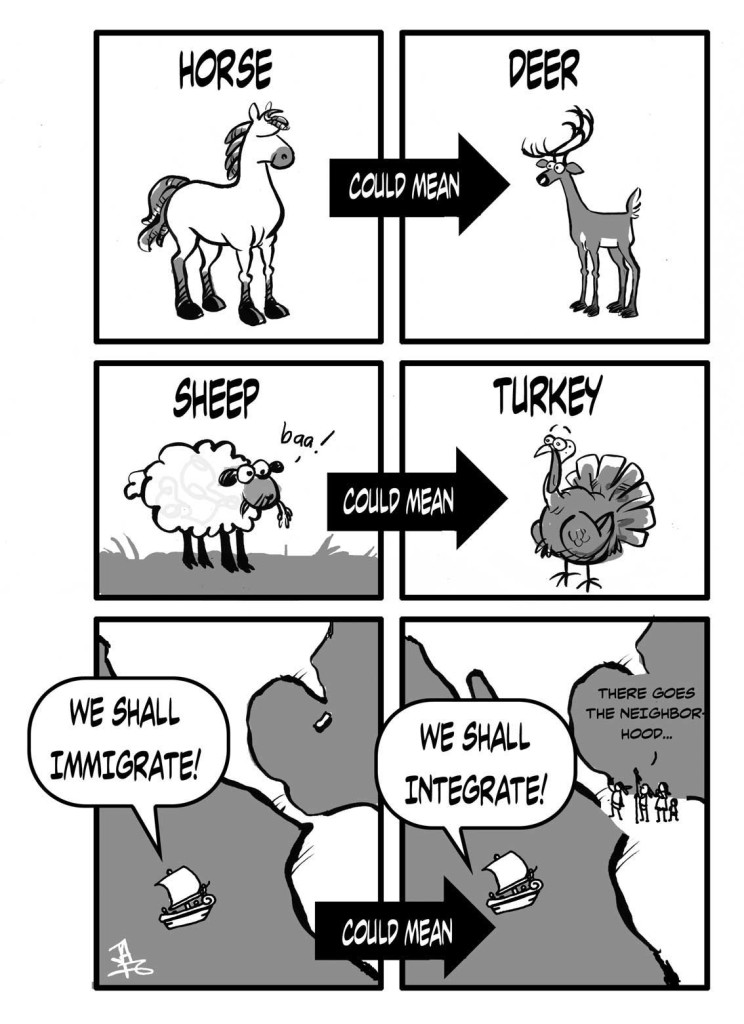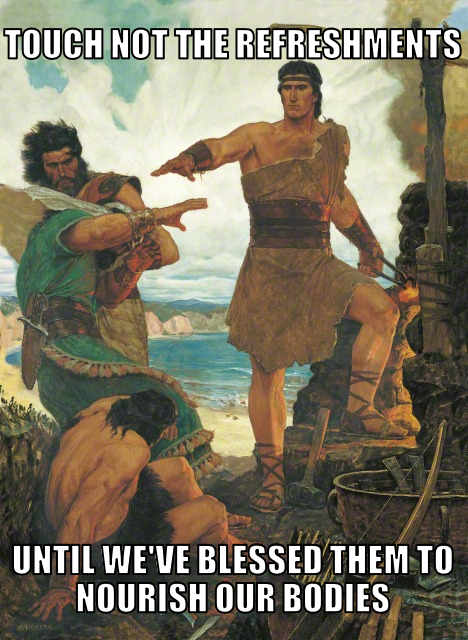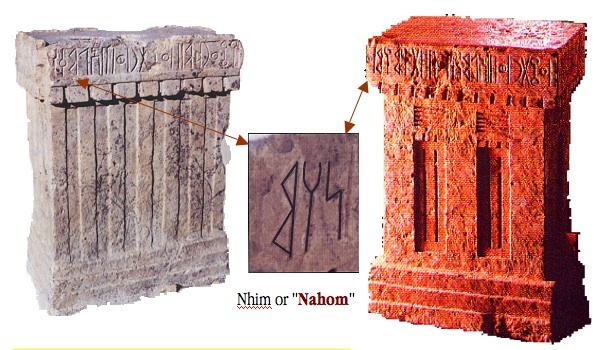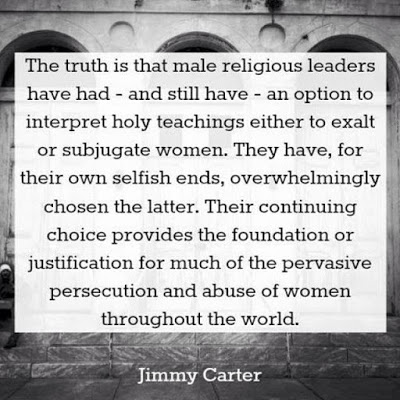“Hearken to the Truth, and Give Heed unto It”
1 Nephi 16–22
LDS manual: here
Purpose
To encourage readers to notice the implausibility of the Book of Mormon account, and to listen to truth and avoid becoming “past reason”.
Reading
One of the amazing yet frustrating things about being an ex-Mormon is that you look back at the stuff you used to believe and think, “How the hell did I believe this stuff?”
For me, that’s especially true of this lesson.
In this lesson, Lehi and his family are starting an eight-year sojourn in the wilderness of the Arabian Peninsula. Strangely, it’s the most well-provisioned wilderness anyone’s ever seen. There’s so much food and resources, you could build a ship out of them. Everything in this reading is simply bursting with implausibility, to the extent that I must have been stupid or blind to have granted it the least bit of credence.
But in retrospect, all the implausibility vanished away with one wave of the magic wand: God can do anything. In which case, God’s an idiot for doing things this way, making humans go through the motions for these impossible actions, when he could have thought of a more direct and less tedious way for people to do it, or just done it himself.
So here’s what’s in this reading.
- Lehi and family travel to pick up Ishmael’s family. No concern for the wishes of the daughters is evinced. Or indeed, their names. Mormonism never misses an opportunity to tell women they don’t matter.
1 Nephi 16:7 And it came to pass that I, Nephi, took one of the daughters of Ishmael to wife; and also, my brethren took of the daughters of Ishmael to wife; and also Zoram took the eldest daughter of Ishmael to wife.
- They find a Liahona, which is kind of like an iPad, but rounder and more steampunk.
1 Nephi 16:10 And it came to pass that as my father arose in the morning, and went forth to the tent door, to his great astonishment he beheld upon the ground a round ball of curious workmanship; and it was of fine brass. And within the ball were two spindles; and the one pointed the way whither we should go into the wilderness.
1 Nephi 16:28 And it came to pass that I, Nephi, beheld the pointers which were in the ball, that they did work according to the faith and diligence and heed which we did give unto them.
This is why I love my iPad — I don’t have to believe in it for it to work.
- The company takes seeds and provisions,
1 Nephi 16:11 And it came to pass that we did gather together whatsoever things we should carry into the wilderness, and all the remainder of our provisions which the Lord had given unto us; and we did take seed of every kind that we might carry into the wilderness.
- and they travel for eight years.
1 Nephi 17:4 And we did sojourn for the space of many years, yea, even eight years in the wilderness.
I suppose the reason for all the wandering is that God is trying to figure out what to do with these people. Writer’s block.
- Finally, God gets an idea: He commands Nephi to build a boat
1 Nephi 17:8 And it came to pass that the Lord spake unto me, saying: Thou shalt construct a ship, after the manner which I shall show thee, that I may carry thy people across these waters.
- His brothers murmur, but the Lord shocks them
1 Nephi 17:53 And it came to pass that the Lord said unto me: Stretch forth thine hand again unto thy brethren, and they shall not wither before thee, but I will shock them, saith the Lord, and this will I do, that they may know that I am the Lord their God.
17:54 And it came to pass that I stretched forth my hand unto my brethren, and they did not wither before me; but the Lord did shake them, even according to the word which he had spoken.
- They sail to the Promised land, but en route Nephi’s brothers become rude, and tie him up, probably because he’s so uptight and hates fun.
1 Nephi 18:9 And after we had been driven forth before the wind for the space of many days, behold, my brethren and the sons of Ishmael and also their wives began to make themselves merry, insomuch that they began to dance, and to sing, and to speak with much rudeness, yea, even that they did forget by what power they had been brought thither; yea, they were lifted up unto exceeding rudeness.
…
18:11 And it came to pass that Laman and Lemuel did take me and bind me with cords, and they did treat me with much harshness; nevertheless, the Lord did suffer it that he might show forth his power, unto the fulfilling of his word which he had spoken concerning the wicked.
One theme that keeps coming up throughout the Book of Mormon is that apostates are filled with some kind of murderous desire.
Ask: Now that you’re an ex-Mormon, which of the following do you want to do?
a) Tie people up
b) Kill them
c) Hunt wild beasts
d) Become filthy and idolatrous
e) Debate people on the internet
If you said e), then you’re kind of normal. Be prepared to be accused of a) through d), though.
- Upon their arrival in the Promised Land (USA! USA!), they put their seeds into the earth, and they grow
1 Nephi 18:24 And it came to pass that we did begin to till the earth, and we began to plant seeds; yea, we did put all our seeds into the earth, which we had brought from the land of Jerusalem. And it came to pass that they did grow exceedingly; wherefore, we were blessed in abundance.
No trace of Middle Eastern plants have been found from this time.
- They find animals that didn’t exist, and none that do
1 Nephi 18:25 And it came to pass that we did find upon the land of promise, as we journeyed in the wilderness, that there were beasts in the forests of every kind, both the cow and the ox, and the ass and the horse, and the goat and the wild goat, and all manner of wild animals, which were for the use of men. And we did find all manner of ore, both of gold, and of silver, and of copper.
These animals were not in the Americas at this time.
Now in church, they use to make a big deal out of ancient horses and mastodons caught in the La Brea tar pits. Sorry, guys, but that was the wrong time — about 10,000 years too early.
These are anachronisms — things in the wrong time.
Richard Packham gives a wonderful example of why anachronisms ought to put paid to the Book of Mormon’s claims of authenticity.
One of the most important tests for uncovering an allegedly ancient text that is really a product of later times is the presence of anachronisms, that is, things that are inappropriate to the time in which the work supposedly was written. It is a very straightforward and relatively common-sense test.
For example: Suppose I show you a small book that says on its cover: “Journal of Gen’l George Washington.” You look through the book and at first reading it does, indeed, appear to be the journal of a period in the life of George Washington. What a treasure! It sounds authentic. Its language is typical of the late 18th century, when Washington lived. It contains material hitherto unknown to historians, and yet not contradictory to what is known. I explain to you that it is a faithful typewritten copy of a handwritten book that was found among my grandfather’s belongings.
As you read it, however, you come across this sentence: “This aft’noon rec’d an urgent wire, took the rr train to Philadelphia, arr’d toward evening, met by M. Adams at the sta.”
What is your reaction? Are you suspicious? You know that the railroad did not exist in Washington’s day, nor did the term “rr train” or “sta[tion]” as a place where one would meet a “rr train.” Nor was a message called a “wire”, since that term came into use only with the invention of the telegraph in the next century. These are anachronisms, and immediately mark the text as not from the times of Washington.
What explanation could I give you that would persuade you to accept this text as genuine? I could probably try to defend the authenticity of my text. I could suggest that “rr train” was probably a special shorthand Washington was using for “stagecoach” (even though there is no evidence of such a use in any genuine Washington writings, or in any other writings from the time). A similar argument might be made for “wire” for a message. But to any scholar, and to any ordinary person using common sense and a rudimentary knowledge of history, this text is a clumsy fraud.
Would you change your mind if I listed all the things that are authentic in the text, or that sound believable or possible? No, I would hope not.
Would you change your mind if I argued that, after all, it was only two little anachronisms? No, I would hope not. Even only one anachronism – unless it can be conclusively shown to be a later insertion by someone else (a corruption of the original text) – is enough to condemn a text as not authentic.
Would you change your mind if I confided to you that the journal had been given to my grandfather by an angel of God, and that the angel had told him that it was authentic? I suppose to some people that would make a difference, but only the very, very gullible.
The examples given above are of anachronistic objects. A linguistic anachronism is the use of a word which actually did not come into use until much later than the alleged date of the document. For example, if we found in the purported journal of Washington the expression “fifth column” (meaning undercover sabotage agents), we would know that the journal is not authentic, since that expression was coined and first used during the Spanish Civil War in the twentieth century.
If this biography of George Washington says, “We’ve got our iPods charged, and we’re ready to rock and roll,” then thats it. It’s fake. We’re done. It doesn’t matter if it gets a few other things right.
Apologists try to explain their way around anachronisms by using their favourite trick: redefining words. A cow might have been a bison. An ox might have been a mastodon. Anything might have been anything other than what the word means.
 It would have been simple for Nephi to say, “We found a bunch of weird freaking animals that we’d never seen before.” But no.
It would have been simple for Nephi to say, “We found a bunch of weird freaking animals that we’d never seen before.” But no.
Let’s focus on horses for a second. There’s no evidence of any horses native to the Americas during the time of Lehi’s fictional family. They died out 11,000 years ago, and were reintroduced by the Spanish. (Same for goats.)
Rather hilariously, Robert Bennett of FARMS suggested that the word horse actually referred to the tapir.
It is also possible that some Book of Mormon peoples coming from the Old World may have decided to call some New World animal species a “horse” or an “ass.” This practice, known as “loanshift” or “loan-extension,” is well known to historians and anthropologists who study cross-cultural contact. For example, when the Greeks first visited the Nile in Egypt, they encountered a large animal they had never seen before and gave it the name hippopotamus, meaning “horse of the river.” When the Roman armies first encountered the elephant, they called it Lucca bos, a “Lucanian cow.” In the New World the Spanish called Mesoamerican jaguars leones, “lions,” or tigres, “tigers.”
Similarly, members of Lehi’s family may have applied loanwords to certain animal species that they encountered for the first time in the New World, such as the Mesoamerican tapir. While some species of tapir are rather small, the Mesoamerican variety (tapiris bairdii) can grow to be nearly six and a half feet in length and can weigh more than six hundred pounds. Many zoologists and anthropologists have compared the tapir’s features to those of a horse or a donkey.
Yes, it’s one of these.
Lamanites rode these noble steeds across the dusty plains.
As a result, the tapir has become the unofficial mascot of the ex-Mormon movement.
- Nephi copies a lot of Isaiah.
1 Nephi 19:23 And I did read many things unto them which were written in the books of Moses; but that I might more fully persuade them to believe in the Lord their Redeemer I did read unto them that which was written by the prophet Isaiah; for I did liken all scriptures unto us, that it might be for our profit and learning.
He even copies Deutero-Isaiah, who hadn’t written anything by the time Lehi was supposed to have left. Whoops — another anachronism.
It doesn’t end with Isaiah. Nephi copies a lot of things that hadn’t been written yet. Check this page from the Skeptic’s Annotated Book of Mormon, and see how the author quoted everyone from Malachi to Revelation.
Main ideas for this lesson
Impossible things
I want to focus on two impossible things that Nephi and family did:
- building an enormous ship
- making a long sea journey
Building a ship
To build anything that could be called a “ship” would be impossible to build for people living in anything that could be called a “wilderness”. Ship building is something that took entire communities working together to bring about, with a complex array of goods, materials, and labor.
I’ve got to ask you to take the time and listen to this episode of John Larsen’s Mormon Expression podcast: How to Build a Transoceanic Vessel. Not only is it hilarious, it’s devastating.
The short version: Nephi would have had to extract iron ore from somewhere with his bare hands, and then smelted tools. He would have had to bring together entire forests of high-grade wood, loomed cloth to make sails, and gotten together an array of provisions of Noachian proportions. Just assembling the raw materials would have required Herculean effort from the tiny group (who would have been busy tending children and… you know… rebelling), to say nothing of the time it would have taken to build the actual ship. It’s not just a bit off – it’s all screamingly wrong. As Randy says: “It’s Gilligan’s Island Level ridiculousness.”
Joseph Smith, or the author of the Book of Mormon, knew dick-all about ship building, which is probably why he covers the entire project in three verses, in as little detail as possible.
1 Nephi 18:1 And it came to pass that they did worship the Lord, and did go forth with me; and we did work timbers of curious workmanship. And the Lord did show me from time to time after what manner I should work the timbers of the ship.
18:2 Now I, Nephi, did not work the timbers after the manner which was learned by men, neither did I build the ship after the manner of men; but I did build it after the manner which the Lord had shown unto me; wherefore, it was not after the manner of men.
18:3 And I, Nephi, did go into the mount oft, and I did pray oft unto the Lord; wherefore the Lord showed unto me great things.
18:4 And it came to pass that after I had finished the ship, according to the word of the Lord, my brethren beheld that it was good, and that the workmanship thereof was exceedingly fine; wherefore, they did humble themselves again before the Lord.
Lehi’s path
Have you ever thought about the family’s putative path on a map? I hadn’t.
Their starting point would have been somewhere on the Arabian peninsula, according to LDS sources.
And they would have had to get to somewhere on the American continent.
Now here’s a graphic from the wonderful series “Brutally Honest Mormon Coloring Pages (Part 5)” by gileriodekel.
Ask: Does this look like a plausible path for someone around 600 BCE? Take all the time you need.
They would have had to either sail around the Horn of Africa (in the near-Antarctic cold), or navigate through Indonesia. Either way, that’s a long freaking path.
I spent nearly forty years in the church, and as much as I read the Book of Mormon and told others about it, I’d never thought about the path. Maybe it was my poor geography or my thoughtlessness, but when I saw that map this week, I stared at it for five minutes before tossing the laptop aside and wondering again: How did I ever belive this rubbish‽
Maybe it’s that the bullshit goes so deep and spreads so wide that it’s impossible to consider all the BS, item by item. Yet there it is.
Additional lesson ideas
600 BCE?
We’ve already seen a problem with the chronology and Hezekiah.
1 Nephi 19:8 And behold he cometh, according to the words of the angel, in six hundred years from the time my father left Jerusalem.
The church pegs Lehi’s departure at 600 BCE because of this verse, but if there’s one year Jesus couldn’t have been born, it’s the year 1, according to the Bible chronology. Short version: Jesus would have been about 2 years old when Herod put the hit out on him, and Herod is known to have did in the year corresponding to 4 BCE. That makes the Book of Mormon chronology about 6 years out.
This book’s a mess.
Nahom
Now here’s an apologetic item. The Book of Mormon mentions a place called Nahom.
1 Nephi 16:34 And it came to pass that Ishmael died, and was buried in the place which was called Nahom.
And what do you know: in the Arabian Peninsula, alters have been found with an inscription that corresponds to NHM. Clearly a win for Book of Mormon archaeology!
Well, maybe not. It’s NHM, not Nahom — vowels not typically written in Semitic languages. So NHM could be Noham, Nihum, Nahem, or any other combination. It could have been Nahum, which is the name of an Old Testament book, and which Joseph Smith could have copied.
And remember also that, with only 30-odd consonants in use for most languages, it’s not implausible for any combination to pop up somewhere. If someone had found BTF or BNT or BNF on an inscription somewhere, they’d be claiming a match for Bountiful. SHML could be a hit for Ishmael, even though it might have been used to mean something else. And the same could happen for any one of the place names and character names in this part of the story. NHM is firmly within the realm of linguistic coincidence.
Check out these pages for more criticism of the tenuous Nahom connection.
A side question: If Nephi and co. gave the place that name, how would anyone know it, and carry the name on? On the other hand, if the place already had that name, then when did Nephi and co. meet up with them? They never mention seeing anyone else. We’ll see this problem again — if there were other people around, Nephi sure is thoughtless in not mentioning them.
Let’s put this into perspective: If the Book of Mormon were true, there should be loads of evidence for it on multiple continents. Instead, what do we get? A group of three consonants, that could be a coincidence. This is literally the best they have.
And again, if something turns out right, it doesn’t help the case for the Book of Mormon. We’d still have to explain away all of the linguistic, historical, and archaeological anachronisms that turned out wrong.
Past reason
Finally, here’s a bit from the LDS lesson manual about being “past feeling”.
• Nephi told Laman and Lemuel that they “were past feeling, that [they] could not feel [the Lord’s] words” (1 Nephi 17:45). What does it mean to feel the words of the Lord? (See the quotation below.) What causes people to become “past feeling”? How can we prepare ourselves to feel the words of the Lord?
I would argue that a more serious condition would be that of being past reason, where a person is no longer able to be convinced by evidence and logic, since they’ve forsworn its use.
Robert Kirby of the Salt Lake Tribune has written a wonderful article called “Kirby: Could you handle the truth about your religion?” He asks:
What if you could learn whether the religion you follow is true simply by pushing a button?
No more need for faith. Now you could actually know instead of just believing that you do. Would you push the button? Even if knowing the truth might make you really unhappy?
Are you kidding? I’d be scrambling to push that button. If I’m wrong, I want to know it.
But other people aren’t so keen. Kirby continues:
The way I see it, your answer to the button question depends on where you are in the truth-seeking process.
First is that you want to know the truth badly enough to push the button regardless of which answer comes up. Truth is more important to you than personal comfort.
Second, you’re the kind of person not willing to place what you believe in jeopardy. Ignorance is so blissful that you stay as far away as possible from the truth button lest your emotional security be undone accidentally.
Finally — and most stupidly — are the people who wouldn’t push the button because they already “know” their religion is true.
…
There’s no relating to the last group of people, who believe their personal faith is the final word, so there’s no need to investigate further.
Kirby’s piece actually makes me wonder if he’s on the way to the Land of ex-Mormonia. I’ve often asked that question to religious people, “If your religion is wrong, would you want to know?” And if their answer is no, then there’s not really a point, is there? They’d rather keep being wrong their whole lives. They’re past reason, past curiosity, past thinking.
We need to let ourselves go along with reason, logic, and evidence. It doesn’t work otherwise.














Recent Comments